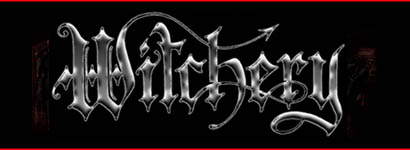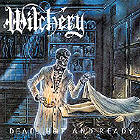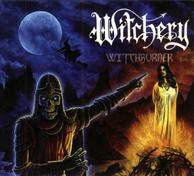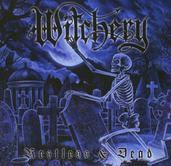

|
|
|
|



Confused? Think of the vast array of heavy metal subgenres spawned since its advent: death metal, speed metal, thrash metal, grindcore, black metal, gore metal, porn metal, sludgecore . . . and on and on the list seems to infinitely flow.
Now imagine your response if I were to write in a review of, let's say, the new Immortal album, "This is death metal at its finest." Black metal purists would possibly don their corpse paint and bullet belts and declare war on the ignorant sod dubbed The Grinning Sadist. My e-mail in box would resemble a Norwegian church, consumed by scorching flames. And if that's not enough, imagine the responses of the death metal contingency. I won't go there.
To be quite blunt, every band in every subgenre of heavy metal has its tight, restrictive cubicle within which it must perform, as not to piss off the natives. Why? Because the respective members of the various heavy metal communities are possessed by a neo-conservative, almost obsessive-compulsive fanaticism that striates and fortifies the underlying "laws" that govern the definitions of such subgenres. (Uh oh. I'm starting to sound like a frightening mix between an academic and a minister. I'll continue.)
Yet it hasn't always been this way, has it? I remember when heavy metal was heavy metal. Sans the qualifiers. Nothing more and nothing less. Sure, metal of the speed and thrash varieties were beginning to sprout at the time, but still we declared it heavy metal. Now I'm left to wonder if there are any bands to which we can comfortably apply the moniker "metal," in and of itself. Certainly Manowar (unless we create the subgenres "Conan the Barbarian Metal" or "Loin Cloth Metal"). Perhaps Motorhead.
Why not Witchery, a band who has alluded comfortable classification, more often than not being dubbed by critics "black-death," a hybrid of the two subgenres? That's fine for them, I suppose, but from here on out, Witchery is, to this critic, heavy metal. The genre's platonic ideal. Regardless of Toxine's black metal vocals and the B-movie schlock that graces Restless and Dead's album cover and lyrical themes.
Maybe this is due to the retro feel of the music itself. Much metal today tends to either fly along at warp speed, blurring the output of the instruments into a clusterfucked aural tapestry, or at a nonlinear crawl, abjecting any resemblance to a standard, recognizable song structure while embracing a more chaotic, free form framework within which to create. The fellows in Witchery, however, have no qualms about utilizing a less complex song structure, most often opting for the standard verse-chorus-verse structure that dictates popular music. This is not to say that the music of Witchery is simplistic, however. It's just that the band has embraced a formula that works quite well for it: relatively short, catchy songs that are always blessed with a forward momentum; appropriate guitar leads; and a great sense of melody that keeps things from getting too abrasive. In other words, the fellows in Witchery know how to write songs that get stuck in your brain and on your lips, like television commercial jingles that are neither insulting, uncreative or annoying.
So let me state it slightly differently: whether the music is pounding and thrash riddled (such as the album's opener, "The Reaper," the band's namesake song, "Witchery," and the album's closer, the title track) or a bit slower and more menacing ("The Hangman" and "The Exorcist" are exemplary in this regard) the music is unmistakably Witchery. Music to keep me feeling young. Music that keeps me believing in heavy metal, in and of itself. Nothing more and nothing less.
